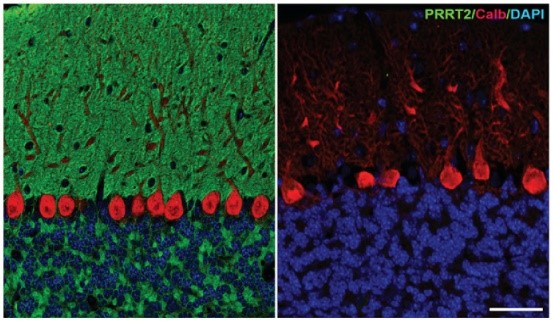Department of Psychology
Research Labs
Center for Health Promotion and Evaluation (CHPE)

Click here to learn more about the CHPE 👇
Established in 2002, the Center for Health Promotion and Evaluation (CHPE) is directed at understanding and improving health behaviors, particularly among young people. Most of our research currently focuses on reducing tobacco consumption, but we have also conducted research on a wide range of issues, including school violence, binge eating, dietary restraint, attitudes toward breastfeeding, and body mass index in teens.
Point of Contact:
Leslie Robinson, Ph.D.
lrobinso@memphis.edu
Center for Research on Diversity, Equity, and Well-Being in Schools

Click here to learn more 👇
Our goals are to provide practical, community-based solutions aimed at reducing inequities in school systems, improving social-emotional well-being among students, and boosting the efficacy of school staff. Current projects involve qualitative, quantitative, and mixed-methods investigations around the topics of cultural humility, diversity & equity, and school climate & school safety.
Point of Contact:
Emily N. Srisarajivakul, Ph.D.
emily.srisarajivakul@memphis.edu
Child Health and Illness Lab (CHILL)

Click here to learn more about the CHILL lab 👇
The Child Health and Illness lab conducts research spanning the fields of pediatric psychology, child-clinical, clinical health psychology, and applied-quantitative psychology. Most broadly, this research focuses on cultural, family, and behavioral factors that promote health and reduce morbidity in childhood chronic illness. More specifically, this research hopes to:
- Examine models of stress and adaptation to promote quality of life and regimen adherence among youth with type 1 diabetes and their families
- Identify the influence of cultural and family factors on children’s weight, diet, and mealtime behavior, with a particular focus on obesity in early childhood.
- Integrate quantitative and behavioral methodologies to inform, develop, and refine clinical health interventions and assessment to reduce and eliminate health disparities.
Point of Contact:
Kristoffer S. Berlin, Ph.D.
ksberlin@memphis.edu
HABIT Lab

Click here to learn more about the HABIT Lab 👇
The HABIT laboratory conducts research that addresses important public health priorities related to addiction and health. For example, alcohol abuse among young adults results in thousands of injuries, assaults, and fatalities each year and can set the stage for a lifelong pattern of alcohol abuse and/or dependence. We have conducted several controlled clinical trials that have demonstrated that brief interventions incorporating motivational interviewing and personalized drinking feedback can reduce heavy drinking among young adults (including both college students and military veterans). These interventions are now being adopted across the country. We are currently funded by NIH to improve standard brief alcohol and marijuana interventions by adding a behavioral economic supplement that encourages engagement in constructive alternatives associated with delayed reinforcement.
The HABIT lab also conducts applied clinical research that is influenced by basic behavioral and biological research (e.g., translational research) and contributes to the overall goal of improving our scientific understanding of human behavior. For example, we have used behavioral economic theory and basic laboratory research to guide our applied research on substance abuse etiology, assessment, and prevention.
Point of Contact:
James Murphy, Ph.D.
jgmurphy@memphis.edu
KuhlMedia & Mind Lab

Click here to learn more about the KuhlMedia & Mind Lab 👇
We research learning in multimedia environments which have become ubiquitous for STEM learning but can be challenging for student learning because they contain an abundance of complex and abstract representations. By designing emerging technologies according to the cognitive science of learning, we can help students navigate the complexity of multimedia environments in a way that best supports their learning. The goal of our lab is to better understand the motivational, cognitive, metacognitive, and affective processes that are fostered by well-designed multimedia environments and how that, in turn, supports STEM persistence and success.
Point of Contact:
Dr. Shelbi Kuhlmann
s.kuhlmann@memphis.edu
Language and Behavior Lab (LaBlab)

Click here to learn more about the LaBlab 👇
The LAB lab is run by Stephanie Huette. We seek to understand the principles and mechanisms of cognitive processes that underlie meaning (semantics) in language, as well as their implications for behavior. We also investigate the role of behavior and real complex environments on learning and real-time processing of language. Our research uses dynamic measurements, including eye-tracking and motion-tracking technologies, to track behaviors as they unfold.
Point of Contact:
Stephanie Huette, Ph.D.
shuette@memphis.edu
Laboratory Investigating Elementary Readers (LIGER)

Click here to learn more about LIGER 👇
Our research focuses on three primary lines of inquiry regarding reading fluency and its role in supporting reading comprehension. First, we examine theoretical questions about the relation between oral and silent reading fluency across development and the roles of various subcomponent skills in facilitating fluency and comprehension. Second, we investigate assessment practices with the goal of ensuring that students with reading disabilities are accurately identified as early as possible. Lastly, we seek to develop literacy interventions that facilitate the development of proficient oral reading and independent silent reading skills.
Point of Contact:
Beth Meisinger, Ph.D.
bmsinger@memphis.edu
Movement and Neurodegenerative Disorders

Click here to learn more 👇
Our research uses a multi-disciplinary approach to study the pathobiology of movement and neurodegenerative disorders including but not limited to Parkinson disease, dystonia, ataxia, essential tremor, and Huntington disease. We use tools from genetics, molecular biology, morphological neuroscience, computational biology, behavioral neuroscience, and neuropharmacology to study humans and relevant model systems.
Point of Contact:
Mark LeDoux, MD, PhD
msledoux@memphis.edu
Optimal Learning Lab

Click here to learn more 👇
The Optimal Learning Lab (optimallearning.org) represents Dr. Pavlik's and associates' work on a variety of theoretical and applied learning and memory problems. Specific interests include intelligent tutoring, discovery of models, spacing of practice effects, testing effects, and forgetting. Please contact Dr. Pavlik to be placed on the mailing list. Publication and demo applications are available on the website. The Optimal Learning Lab is affiliated with the Institute for Intelligent Systems and Department of Psychology.
Point of Contact:
Philip I. Pavlik Jr., Ph.D.
ppavlik@memphis.edu
Peer Interaction Group Research Lab

Click here to learn more 👇
Our research focuses on elementary school-aged children’s peer relations and social competence. More specifically, we examine peer social status and popularity; friendship relationships; traditional and cyber aggression and victimization; and self-perceptions of social competence, loneliness, peer optimism, and attributions of respect.
Point of Contact:
Robert Cohen, Ph.D.
rcohen@memphis.edu
Psychology of Language Laboratory

Click here to learn more about the Psychology of Language Laboratory 👇
Students in the Psychology of Language lab explore diverse topics in psycholinguistics, including discourse processing, pragmatics, nonliteral language (such as exaggeration and sarcasm), and computer-mediated communication (e.g., via e-mail, Twitter, and Facebook).
Point of Contact:
Roger Kreuz, Ph.D., Associate Dean
rkreuz@memphis.edu
Psychotherapy Research Lab

Click here to learn more about the Psychotherapy Research Lab 👇
Studies in the research lab of Dr. Jeffrey Berman focus on a broad range of issues concerning the process and outcome of psychotherapy and the interaction between therapist and client. The lab is within the psychotherapy research concentration of the Clinical Psychology program. Graduate and undergraduate assistants are involved in all phases of the research process and are encouraged to develop their own research projects.
Additional Information:
Opportunity in Psychotherapy Research Lab
Opportunity for Psychology Honors Students
Point of Contact:
Jeffrey S. Berman, Ph.D.
jberman@memphis.edu
Tennessee Recovery and Effective Addiction Treatment (TREAT) Lab

Click here to learn more about the TREAT Lab 👇
The Tennessee Recovery and Effective Addiction Treatment (TREAT) Lab focuses on evaluating the effectiveness of psychological treatments for individuals with addiction. Our research spans psychotherapeutic treatments for both gambling and substance use addictions. Please visit our lab webpage for more detailed information about our active research projects and our research team.
Point of Contact:
Rory A. Pfund, Ph.D.
rapfund@memphis.edu
The Institute for Gambling Education and Research (TIGER) - Clinical Health Psychology Concentration

Click here to learn more about TIGER 👇
The Gambling Lab
The Institute of Gambling Education and Research (TIGER) is composed of the Gambling Clinic and the Gambling Lab. The Gambling Clinic treats individuals with gambling disorders, trains professionals and doctoral students, educates consumers, as well as develops tools to measure and intervene with excessive gambling behavior.
The Gambling Clinic
The Gambling Lab transforms its Gambling Clinic experiences into empirical questions about both risk factors and protective factors related to disordered gambling.
Point of Contact:
James P. Whelan, Ph.D.
jwhelan@memphis.edu
gambling@memphis.edu
The School Psychology Applications and Research Collaboration (SPARC) Laboratory

Click here to learn more about the SPARC Laboratory 👇
Established in 2023, the School Psychology Applications and Research Collaboration (SPARC) Laboratory was founded to examine assessment techniques and the application and sustainability of evidence-based assessments in school psychology, investigate the persistence of low-value care in the field, explore the role of generative artificial intelligence in school psychology practices, and employ metascience methods to evaluate the quality and diversity of research in school psychology.
Points of Contact:
Ryan L. Farmer, Ph.D.
rlfarmer@memphis.edu
Randy G. Floyd, Ph.D.
rgfloyd@memphis.edu
Trauma & Coping Research Group

Click here to learn more about the Trauma & Coping Research Group 👇
The Trauma and Coping Research Group (TCRG) is focused on studying the ways that people respond to traumatic events, and on developing ways to help people suffering from the effects of trauma. The primary focus is on post-traumatic stress disorder (PTSD) and some of the behaviors that can go along with it (e.g., substance abuse). We have conducted much of our recent work with military veterans who served in Operations Enduring Freedom and Iraqi Freedom (OEF/OIF), but we have also conducted studies with college students and community survivors of violence.
Point of Contact:
Meghan E. McDevitt-Murphy, Ph.D.
mmcdvttm@memphis.edu
